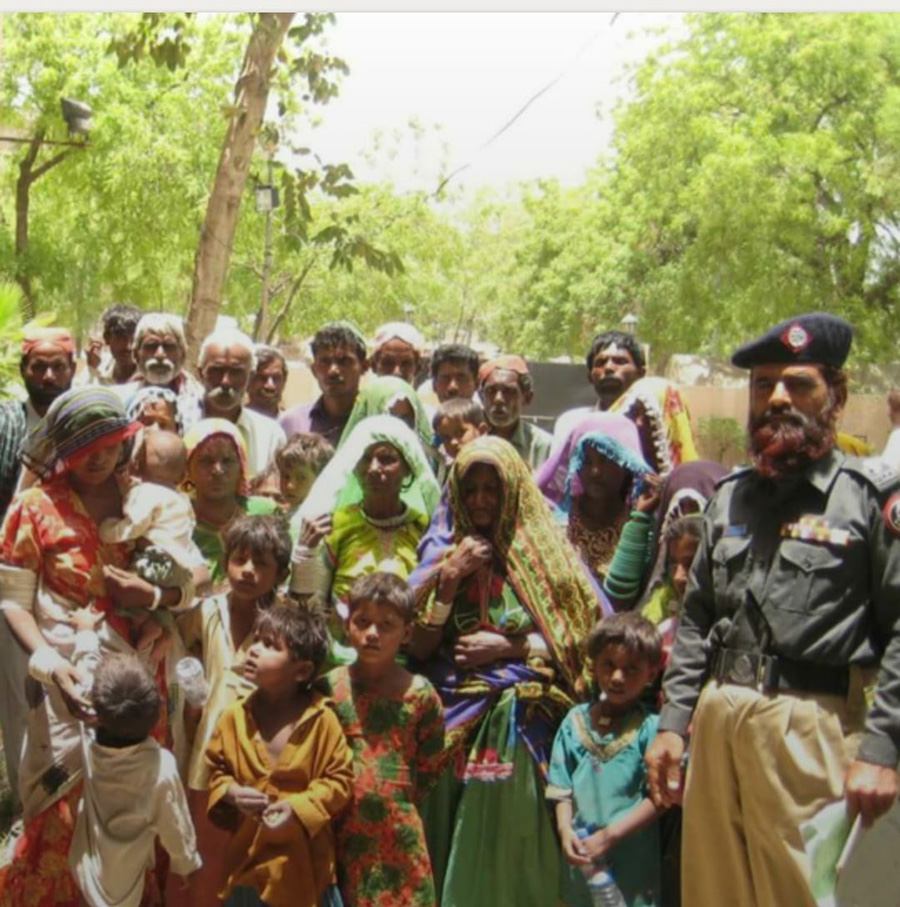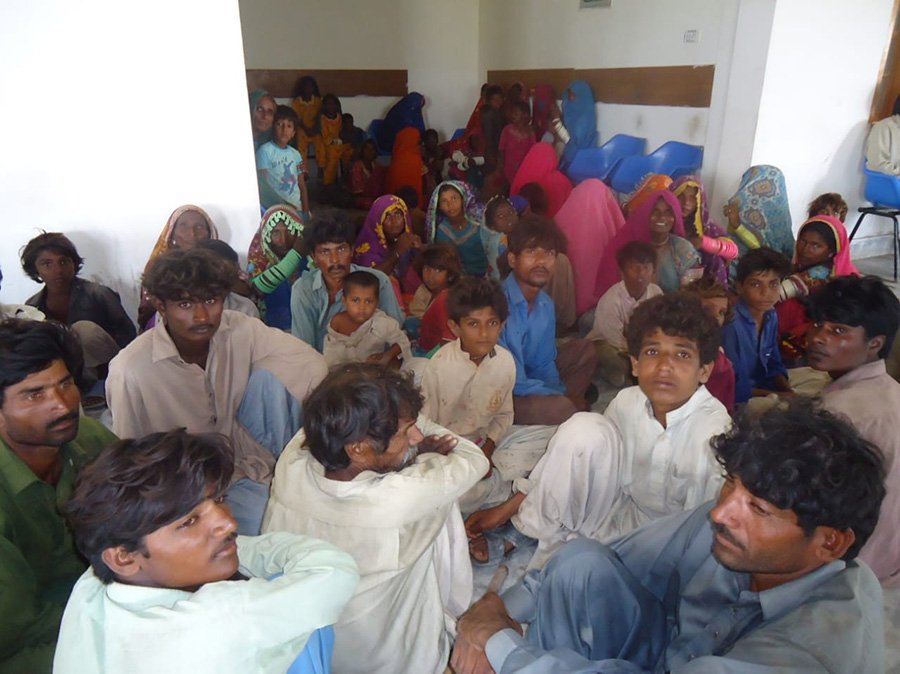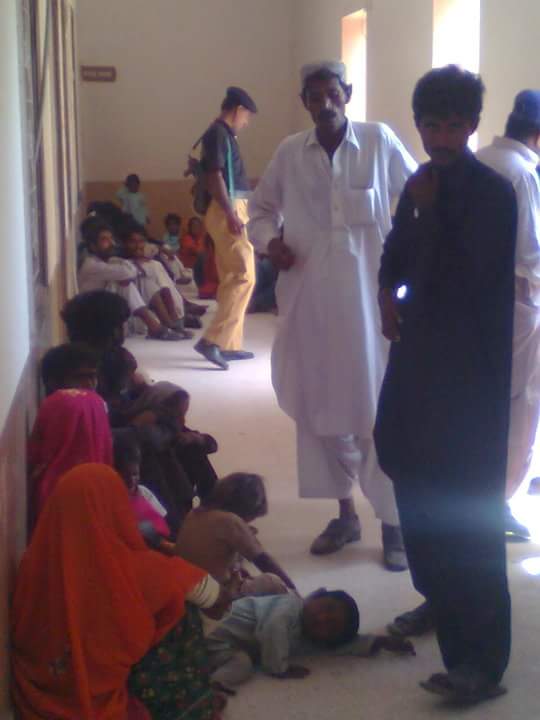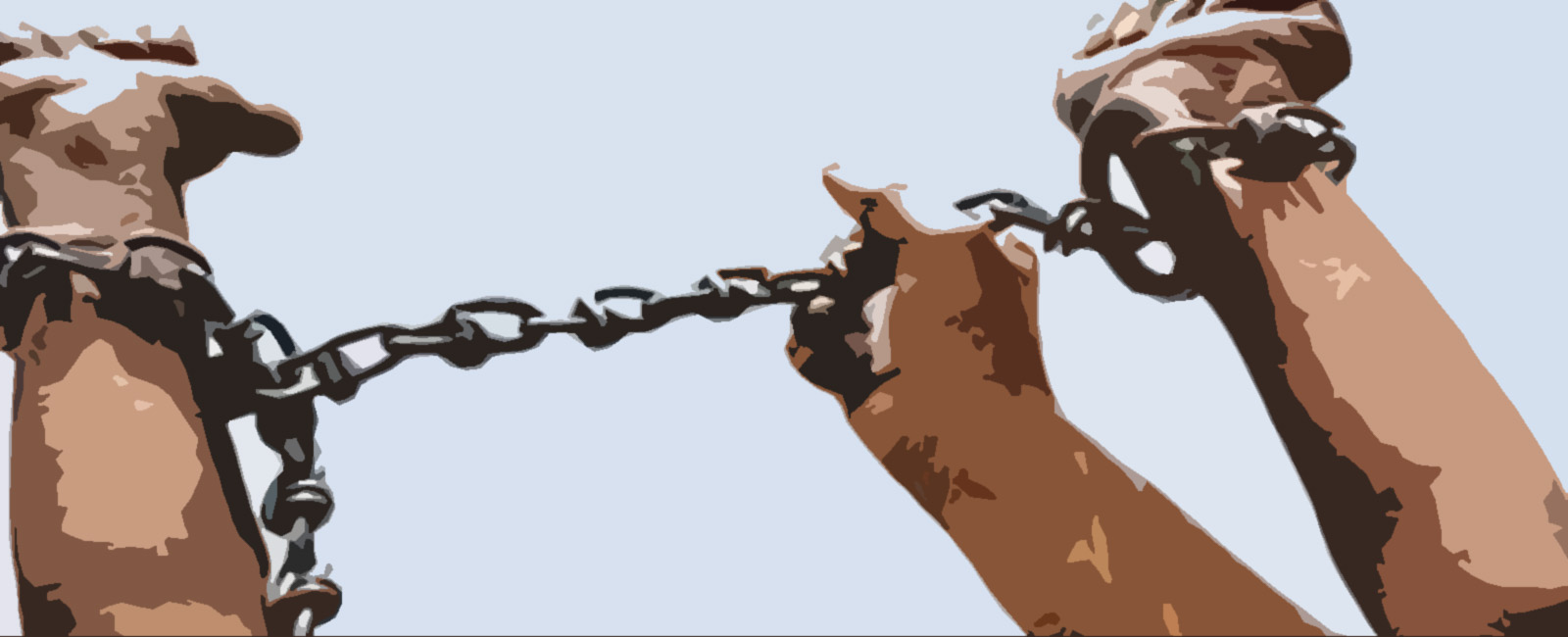Unbroken chains: The curse of modern day slavery in Sindh
According to the Global Slavery Index 2018, there are over 3 million people under bonded labour in Pakistan

It was not a pleasant sight for 45-year-old Anita Kohli*, whose whole world was about to crumble in front of her eyes. Being a staunch matriarch, she could also not bear to stand as a silent spectator. The woman rushed to the aid of her family and struggled to wrench her cattle free from the clutches of the barbaric landlord and his goons. Little did Kohli know that those 16 goats – the crux of her entire wealth- will prove lethal to her wellbeing.
During the struggle, one of the men pushed the grief-stricken woman, who fell to the ground and then struggled no more. It has been months since she was admitted to District Headquarter Hospital Badin in a state of coma while her family is on the run, evading the threats.
Anita and millions of others have fallen prey to the curse of bonded labour in Pakistan – a country which presents a gruesome picture when it comes to modern slavery. As per Global Slavery Index 2018, Pakistan ranks eighth among 167 nations.
The report puts the number of people under bonded labour at 3,186,000 while maintaining that 74.12 out of 100 are susceptible to falling prey to the menace.

Coming to bonded labour in Sindh, Hari is a local umbrella term for landless peasant farmers in the province. The Hari-landlord equation is an asymmetric condition in which the debt on the Hari increases through interest, entangling them deeper into the web of bonded labour.
It has been estimated that most of the modern slavery is deeply concentrated in Pakistan’s Punjab and Sindh. It is also pertinent to mention that the nature of slavery and bonded labour differ in both provinces, as Punjab has a high number of kiln workers under bonded labour, while in Sindh the poor Haris are required primarily to do the landlord’s bidding and work in farms.
Lawyer and activist Ram Kohli, who has been at the forefront of fighting bonded labour cases in Sindh, says to date he has assisted in the emancipation of around 80 to 100 families in collaboration with Human Rights Commission of Pakistan and other locals.
Kohli picked up the battle for Haris’ plight since 2010 in his personal capacity, relying mostly on advocacy, judiciary, activism and media over the years.
Speaking to Geo.tv, Kohli said when he started taking up the cases in Badin, people were not aware of their own rights and were often easily manipulated.
Ram Kohli said that initially, he worked along with Society for the Protection of the Rights of the Child (SPRC) as most of the cases included minors. SPRC and other members associated with it ran a campaign disseminating awareness to Haris about their rights.
He said that after the flood of 2011, most cases of bonded labour were witnessed and through active measures they were granted their rightful freedom.

With the passage of time, a Police Anti-bonded Labour Cell was formed in the province, comprising an SSP, a member of the civil society, legal fraternity member and journalist.
Kohli, who is also a member of the cell, said a case is referred to the committee to do fact-finding and respond to the situation.
“When it comes to bonded labour, most of the people envisage labourers in chains working in a kiln, it is not only limited to it. After giving a loan putting conditionality, taking away a person’s right to work willfully or migrate, is the purest form of bonded labour,” he said.
When dealing with such cases Kohli said the team faced plenty of threats, although they refused to bow down and stood firm.
The cases of bonded labour are extremely detrimental to women and children, who face malnutrition, poor growth, mental trauma, overwork, sexual harassment, abuse and death during delivery in case of women.
The cases often target minorities in the province especially Kohlis, Bheels and Megawars as they are involved in the agricultural sector, said the activist.

On the legal horizon, the Constitution of Pakistan (Article 11) prohibits all forms of forced labour and human trafficking. To date, Pakistan has introduced Sindh Tenancy Act (1950) and has ratified ILO Conventions No. 29 and No. 105 regarding the abolition of forced labour.
The 18th Amendment in the Constitution granted provinces the autonomy to deal with the issue of bonded labour – something which they lack the capacity to do.
There are several laws that aim to eradicate the menace of bonded labour, however, rigorous implementation is still a distant dream.
Sindh Assembly on April 29th 2016, with the assent of the governor, adopted the Sindh Bonded Labour System Abolition Act, 2015 (SBLSAA). The Act abolishes the bonded labour system and decrees a labourer free. The Section 4 (2) also mentions:
“No person shall make any advance under, or in pursuance of, the bonded labour system or compel any person to render any bonded labour or other form of forced, labour.”
However, Ram Kohli alleges that during a proceeding when a landlord claims that he has given an amount to a Hari, it is seldom pointed out that it is prohibited by the law.
In most of the cases courts grant freedom to bonded labour under the Section 491 of the criminal procedure code (CrPC) and Habeas Corpus, he said.
The SBLSAA 2015 also grants the bonded labourer the right to their confiscated property through clauses of Section 6. Unfortunately, in multiple cases, it has been witnessed that no action is taken in this regard.
Under the act, the suspect or enforcer is given a sentence ranging from two to five years and is to pay a fine not less than Rs100,000.
There exists a dire need of awareness especially relevant laws, political will for future legislation, consultation and advocacy to ensure that the underprivileged and oppressed are getting their rights through the legal framework.
To this date in activist Ram Kohli’s memory, there exists an immense regret for failing to help Anita Kohli’s family. The family bowed down to threats and is on the run, while there is no more update on the 45-year-old woman’s health.
“We tried approaching the family members to a great extent but they were too scared to take our help, there is no confirmed trace of them or Anita Kohli who was under treatment. I still wish I knew,” lamented the lawyer.
*Names have been changed to ensure privacy of the person




